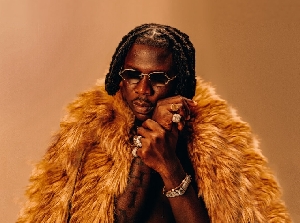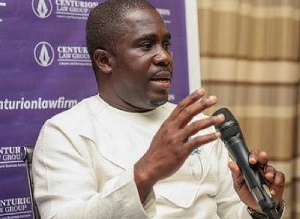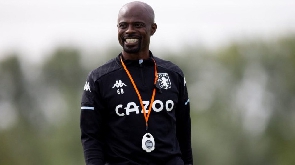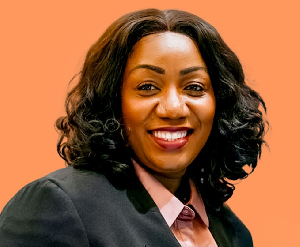Terror Watch: Will Ghana Become another Uganda or Iran? – Part 3
By Kwame Okoampa-Ahoofe, Jr., Ph.D.
After my serendipitous conversation with Dr. Warren Throckmorton, of Grove City College, Pennsylvania, on the scandalous movement against the gay and lesbian community in Ghana, I have decided to let this originally projected two-part series assume a life of its own, as it were, until the conclusion is arrived at that, indeed, enough has been written and discussed about this issue to permit us to move onto other equally pressing matters of social importance.
Actually, I am beginning to seriously entertain the idea that, perhaps, this momentous discourse ought to be developed into at least a small volume, or monograph, on the subject. And here, by monograph, is not meant any lengthy academic composition or dissertation, but an adequately cohesive corpus of discussions on the subject that is not necessarily academic in thrust but fairly well-informed. Unlike Dr. Throckmorton, however, I am no psychologist or specialist on the subject but merely an interested writer desirous of critically engaging an equally largely lay Ghanaian public which, unlike this writer, is dead set against the fundamental right of gay and lesbian Ghanaian citizens to the untrammeled expression of their sexuality and/or sexual orientation just like their heterosexual relatives and fellow citizens.
It is also quite curiously fascinating that otherwise erudite Christian, and even Muslim, religious leaders who have absolutely no qualms about the unreserved acceptance of the “Trinitarian Doctrine” of the Father, Son and the Holy Spirit, one that is confidently accepted as an article and “Mystery of Faith,” should find it so difficult to accept the presumably natural tendency of some humans to sexually and mutually gravitate towards members of the same gender.
Needless to say, the patently un-African doctrine of the “Holy Trinity” does not either philosophically or scientifically into the mode of any known major African culture. And yet, the very same African religious leaders who have absolutely no qualms about the acceptance of a “Homosexual Trinity” purely as a matter of faith than reason, find it extremely difficult, or virtually impossible, to accept the striking reflection of such homosexuality in the practical affairs of modern humans. And here must be promptly explained the fact that we arrive at our designation of the “Holy Trinity” as a patently homosexual principle of creativity primarily on the basis of the fact of all three manifestations of the Divine Godhead – or Divinity – being represented by the masculine pronoun of “He.”
The Roman Catholics appear to have detected this procreative anomaly earlier on, and so they relatively belatedly introduced amidst the “Trinitarian Principle” the fourth “Complementary Principle” of the Virgin Mary. For even in our indigenous African cosmogony, it only makes sense to have the Divine Godhead conceived and delivered by the “Female Principle” of the Virgin Mary, albeit via the “Immaculate Conception.”
This fourth complementary principle of procreativity may be aptly deemed to have both ritualistically and officially marked the beginning of the theoretical and/or philosophical acceptance of gender equality by the Christian Church and religion. We, of course, need not to belabor the fact that the practical actuality of the preceding is a different species of animal altogether.
On the modern African front, the first time that we witness a critical challenge of the male-gendered principle of the “Holy Trinity” is, of course, in Professor Chinua Achebe’s classic novel titled Things Fall Apart (Heinemann, 1958). Incidentally, Professor Achebe taught this author African Literature at the City College of New York of the City University of New York.
Anyway, in the aforementioned novel, when the people in the Ibo-Nigerian village of Umuofia are introduced to the homosexual concept of the “Holy Trinity,” Elder Obi Okonkwo, the most locally decorated heroic personality of his clan, asks why a procreative Trinitarian principle would lack its necessary female complement. And when, predictably, the evangelical missionaries find themselves caught flatfooted and hopelessly mired in ratiocinative illogicalities, Elder Okonkwo sneers with appreciable contempt and goes about his daily activities almost as if nothing has happened. Needless to say, this was his first ominous encounter with European imperialism.
And, of course, to the preceding effect must be added the quite well-known fact that it was primarily the far superior weaponry of the European colonialists, through the brutal euphemistic process of “Pacification” that made the spread and acceptance of the Christian religion possible, rather than any perceived relatively more engaging internal logic therein. Pretty much the same thing applies to the spread of Islam in much of the African continent, even though the roguish tendency has been for many an indigenous African Muslim scholar to pretend as if it was primarily the supposedly mellifluous poetry of the Arabic literature of the Koran, rather than the poignant brutality of the jihadist sword.
The point we have been trying to make in this segment of our discourse is that it is rather unpardonably hypocritical for the same religious scholars and leaders who have absolutely no qualms, whatsoever, in accepting the normalcy of a patently homosexual procreative principle of the “Holy Trinity” to be poised to savagely drawing the blood of those of their relatives and fellow citizens who appear to be innately propelled towards expressing their sexual identity and orientation in terms of their psycho-cultural gravitation towards people with the same gender as themselves.
What is also quite fascinating for its flagrant violation of the Christian principle of justice, is the glaring fact that in presuming to be upholding the principle of their faith, these aggressive Christian fundamentalists bear striking resemblance to such Islamist terror groups as Nigeria’s Boko Haram and the Al-Qaeda Corporation of Afghanistan and Pakistan. For after all, did not the Christian deity counsel his followers thusly: “Vengeance is Mine, I shall repay”? (See Deut. 32: 35; also, Romans 12: 19).
*Kwame Okoampa-Ahoofe, Jr., Ph.D., is Associate Professor of English, Journalism and Creative Writing at Nassau Community College of the State University of New York, Garden City. He is a Governing Board Member of the Accra-based Danquah Institute (DI) and author of “Ghanaian Politics Today” (Lulu.com, 2008). E-mail: okoampaahoofe@optimum.net. ###
Opinions of Thursday, 4 August 2011
Columnist: Okoampa-Ahoofe, Kwame
Will Ghana Become another Uganda or Iran? – Part 3
Entertainment

















